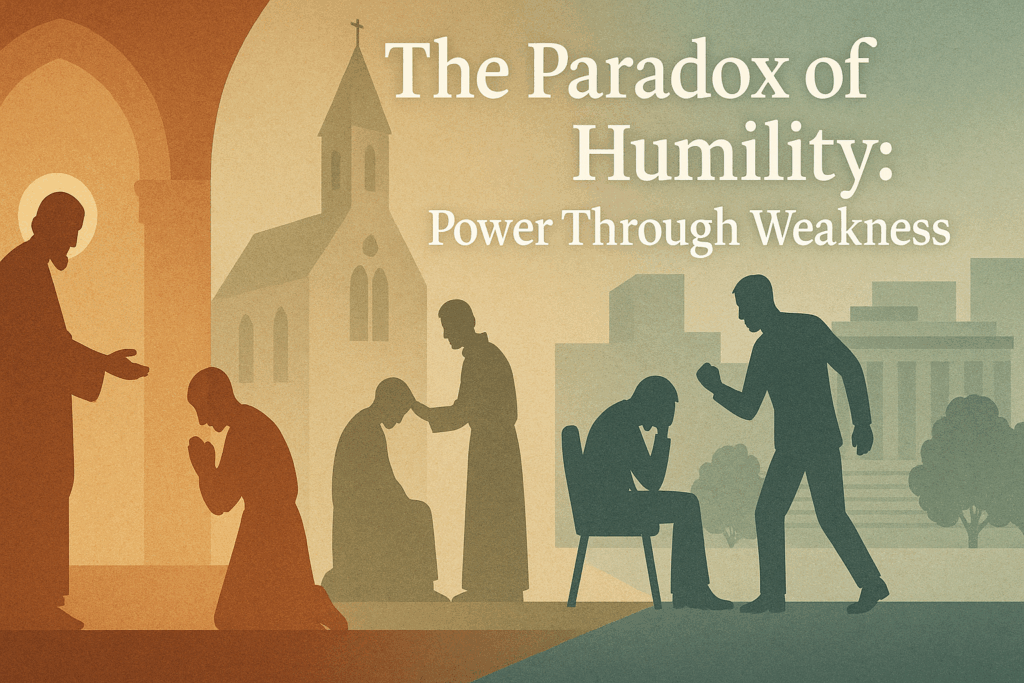Paul’s message to the churches overturned the conventional wisdom of the ancient world. In a culture that exalted strength, honor, and dominance, Paul declared that true power is revealed in weakness, and that humility, not pride, is the path to exaltation. This paradox of humility became a hallmark of Christian ethics and a cornerstone of modern ideals that value compassion, servant leadership, and the dignity of the lowly. By redefining power in terms of service and self-emptying, Paul planted the seeds of a moral revolution that continues to shape our world today.

The Scriptural Witness
In 2 Corinthians 12:9–10, Paul recounts God’s word to him: “My grace is sufficient for thee: for my strength is made perfect in weakness. Most gladly therefore will I rather glory in my infirmities, that the power of Christ may rest upon me. Therefore I take pleasure in infirmities, in reproaches, in necessities, in persecutions, in distresses for Christ’s sake: for when I am weak, then am I strong.” Here Paul makes his own vulnerability the locus of divine strength. Weakness, far from being shameful, becomes the very place where God’s power is displayed. This radical inversion destabilizes worldly hierarchies and honors those who suffer faithfully.
Paul presses this truth even further in Philippians 2:3–8: “Let nothing be done through strife or vainglory; but in lowliness of mind let each esteem other better than themselves. Look not every man on his own things, but every man also on the things of others. Let this mind be in you, which was also in Christ Jesus: who, being in the form of God, thought it not robbery to be equal with God: but made himself of no reputation, and took upon him the form of a servant, and was made in the likeness of men: and being found in fashion as a man, he humbled himself, and became obedient unto death, even the death of the cross.”
This passage presents Christ himself as the supreme example of humility, willingly setting aside divine glory to embrace servanthood and suffering. Paul’s call is not merely moralistic but Christ-centered: to follow Christ is to embody humility, to serve others, and to recognize that greatness is found in self-giving love rather than domination.
The Pauline Paradigm and Modern Ethics
Paul’s paradox of humility transformed the ancient moral imagination. In Greco-Roman culture, humility was often seen as weakness or servility. Honor was to be pursued, power to be displayed, and reputation to be guarded at all costs. Paul rejected this ethic of vainglory, insisting instead that strength is shown through service and sacrifice. This inversion reshaped the Christian community and later inspired countless social movements that elevated the powerless and gave dignity to the marginalized.
In modern ethics, the Pauline vision is visible in the concept of servant leadership. Leaders today are expected not merely to wield power but to serve those they lead, a principle directly descended from Paul’s teaching and Christ’s example. Likewise, humanitarian values that elevate compassion, self-sacrifice, and care for the vulnerable reflect this Pauline paradox. The idea that the weak have dignity and that society is measured by how it treats its least powerful members is a direct inheritance of Paul’s ethic.
Paul’s vision also tempers the modern obsession with success and strength. In societies that often idolize power and wealth, Paul reminds us that vulnerability and humility are not failures but virtues. The greatest strength is not the domination of others but the capacity to give oneself in love.
Why It Matters Today
The paradox of humility remains profoundly relevant in a fractured world. Nations boast of strength, corporations pursue power, and individuals seek recognition. Yet Paul’s paradigm insists that true greatness is not found in conquest or fame but in service and sacrifice. This ethic challenges modern societies to value humility as strength and to recognize that the measure of power is not control but compassion.
Modern secular ethics—whether in social justice movements, humanitarian care, or leadership principles—are deeply indebted to Paul’s paradox. When we celebrate those who serve the poor, when we honor leaders who put others first, when we recognize dignity in weakness, we are carrying forward this Pauline vision. To forget these roots is to risk returning to a world where power is idolized and the weak are despised.
Paul’s paradox of humility thus continues to shape our civilization. It insists that when we are weak, then we are strong—not because weakness itself is glorious, but because it opens the door for love, service, and divine strength to shine. This ethic remains essential to the moral fabric of the modern world.
